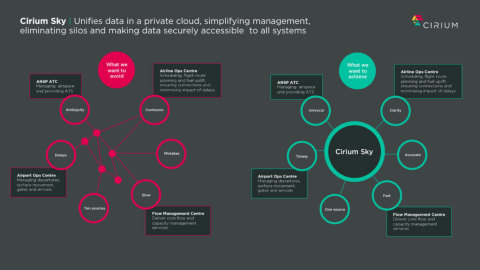Businesses are rapidly embracing the cloud, driven by benefits such as improved agility and efficiency. Public and private clouds are the future, and combining the two gives your business an edge over competitors.
Hybrid cloud allows you to maintain your data in private cloud, the biggest issue of large enterprises and mid-sized businesses being the security of data. They don’t want certain workloads and data to go out of their internal private data centers.
It allows businesses to store data in both public and private cloud environments, with both communicating over encrypted connections independently of each other. This is crucial, as businesses can now store their critical or sensitive data on the private cloud while storing other resources on public networks.
Hybrid cloud provides flexible and powerful computing and storage on demand along with security and reliability. Hybrid cloud allows you to run two interconnected clouds, each storing and processing different data sets. Public clouds let you to scale and enhance efficiency and private cloud provides security, speed and customization.
The agility provided by hybrid cloud speeds up time-to-market for businesses, and improves their abilities to service their employees and customers. A hybrid cloud will support workloads, offering advantage of both the worlds, private clouds being better for steady workloads, and public clouds supporting ad-hoc workloads.
A hybrid cloud approach offers greater consistency, with private cloud ensuring that you have fast access to your critical data, whereas public cloud’s speed dependent on the internet connection.
A hybrid cloud will allow you to move some existing applications to the public cloud, meaning that you don't have to move everything that you've already invested in. Nor will your staff require learning new ways of working, as they can continue with existing applications.
By leveraging the benefits of hybrid cloud, businesses can reduce overall total cost of ownership and improve cost efficiency. Hybrid cloud will let you to more closely match your cost pattern to your revenue/demand pattern.
A hybrid cloud thus has the capability to reflect an architectural framework that is used for a dynamic IT setting. This model can deal with all sorts of unpredictable fluctuations that can arise in the supply and utilization of new prospects. Hybrid cloud also provides enhanced flexibility to adjust according to growth fashions in different enterprise changes. A unified setting would be presented throughout a combination of deployment fashions. This helps in enhancing responsiveness and operational agility!
[Top Image - Shutterstock]
Why Businesses are Preferring 'Hybrid Cloud' ?
Like this content? Sign up for our daily newsletter to get latest updates.
0
Subscribe to:
Post Comments (Atom)
both, mystorymag















 IndianWeb2.com is an independent digital media platform for business, entrepreneurship, science, technology, startups, gadgets and climate change news & reviews.
IndianWeb2.com is an independent digital media platform for business, entrepreneurship, science, technology, startups, gadgets and climate change news & reviews.



